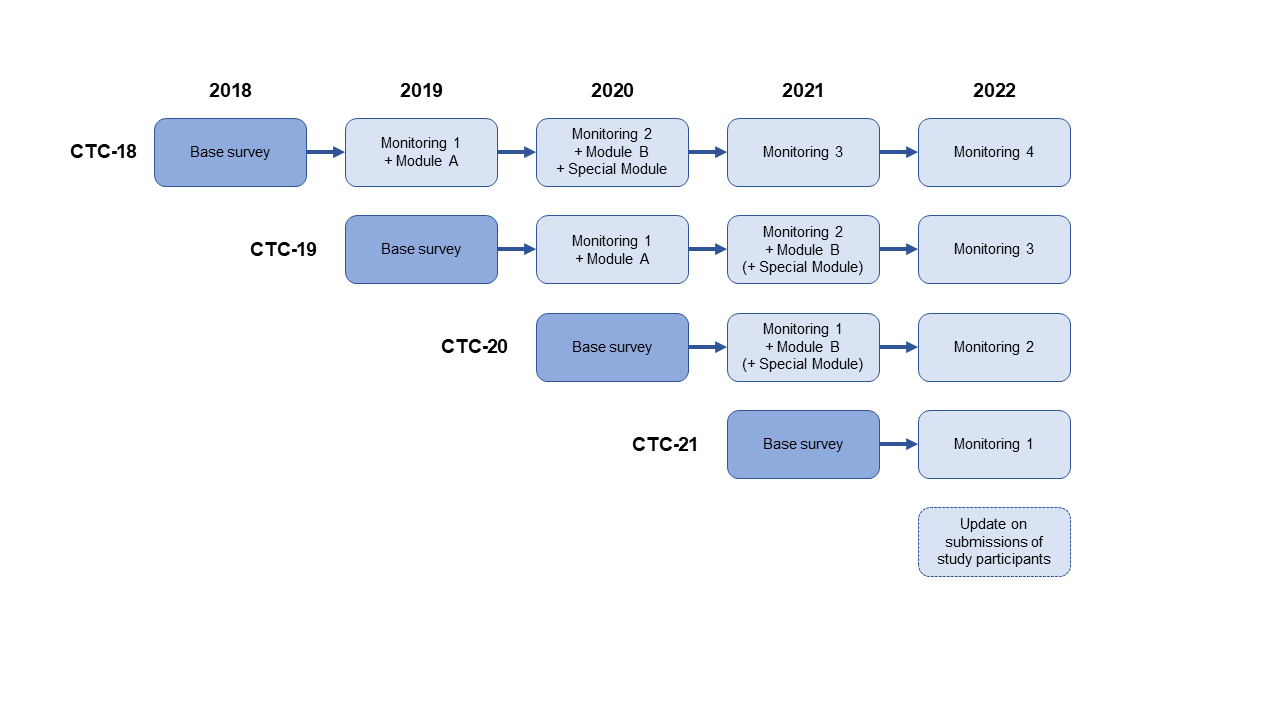Background
Mandated by the Federal Government, the Swiss National Science Foundation (SNSF) supports basic science in all academic disciplines, from history to medicine and the engineering sciences. The improvement of career perspectives for young researchers is a key objective for the SNSF. Over 20 percent of the funds are invested in career funding instruments targeted directly at young researchers. The SNSF has initiated the Career Tracker Cohorts (SNSF-CTC) in order to better understand the impact of these funding instruments on the careers of young researchers as well as the reasons for staying in or leaving academia. The SNSF has entrusted a project team from the University of Bern (Institute of Sociology and the Interdisciplinary Centre for Gender Studies) to carry out the study.
Goals
The main goal of the SNSF-CTC is to gain a better understanding of the career paths of applicants to post-doctoral SNSF career funding schemes as well as of the medium and long-term impact of the career funding schemes of the SNSF. The results will serve as a basis for the future development of career funding policies and instruments. At the same time, the study will provide valuable data for research on the conditions, motives and career perspectives of researchers.
Some key questions of the project are:
- How high is the retention rate in academic science and how does the rate depend on personal characteristics (e.g., gender, age, family status), discipline, type of grant, etc.?
- What are the reasons for leaving academic science?
- In what ways do the career paths of grantees and non-grantees differ?
- What is the impact of SNSF career funding on careers both in- and outside academia?
- How large is the gender gap in research careers and how does it change over time?
- What are gender specific challenges regarding the career development of young researchers?
Study Design
The SNSF-CTC is designed as a longitudinal panel study with yearly cohorts. The target group are all applicants to career funding schemes at the postdoctoral level. These include Early Postdoc.Mobility, Postdoc.Mobility, Ambizione, PRIMA, and Eccellenza. Each year, a new cohort will be launched. In each cohort, all applicants will be included in the study. The panel study consists of three main surveys, which will take place at intervals of several years and at different times depending on the instrument. In between, short follow-up surveys will take place yearly.
Timeline

More information on the project can be found in the different documentations.